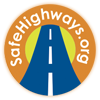The position of Safety Service Patrol driver requires a varied skill set from customer service to auto mechanics. Which skills do you find most valuable to your work and how have you been able to apply these skills to other facets of your life?
“I think the most important skill, both in life and in the Courtesy Patrol arena, is communication. Clearly, communication between partner or co-worker is vital to a safe and successful outcome to a situation. The patrol personnel, the citizen and any other agency involved all must understand what action is going to be taken to resolve the incident. Clear communication must occur between all parties involved. Also, when dealing with citizens, who have little or no knowledge of how or why the vehicle may be disabled, you must be able to clearly explain what the trouble is or could be, what you can or can’t do to help and what other assistance they may need to contact. I stress to all the people that I train that communication is the tool most often used, and most needed for each of us to reach our most important goal everyday, which is to go home to our families.”
– Mark Taylor, Safety/Training Coordinator, Dallas County Sheriff’s Department, Courtesy Patrol
“The old cliche, ‘Sail the Seven Seas’ can be easily changed to, ‘Sell the Seven C’s.’
Anybody can drive a vehicle. Anybody can change a tire. Anybody has Somebody who expects them home, safely, nightly. What we have to do is to sell safety to those around us so that we can get home safely each night.
I think the life-skills you need to be a safety service patrol professional are: (in no particular order)
Courtesy, Comfort, Compassion, Common Sense, Confidence, Cooperation, and Communications.
Those ‘Seven C’s can be used no matter where you work or what you are doing.
Always be courteous. Courtesy breeds courtesy. It also breeds cooperation. It opens up lines of communication you may have never seen.
We have to communicate with others to win them. Recognize them, communicate with them. Let them know what to expect in the next step of the process.
And, we don’t communicate by bragging. We do it with confidence. Confidence that we know what we are talking about, or to admit that we need their help to gain even more experience and confidence.
We need to cooperate with one another. We need to be respectful of their time and encourage their input.
We cooperate by using common sense in answering any questions they might have.
We show compassion by acknowledging their strife in life. We show comfort by letting them know we will be glad to work with them to achieve their needs.
Example (Patrol):
Communicate immediately. When getting out of the patrol service vehicle we might say, “Good afternoon. I see that you have a flat.” Acknowledge their flat, their overheated radiator, or their not having enough gasoline. Be courteous, polite, and genuine. We comfort them and we let them know we have the means by which to help them. We show compassion by letting them know that we do want to help them even if for some reason you cant help them, use common sense in directing them to a safe, satisfactory solution. Cooperate with them to come to a common sense safe solution.
Example (Life):
Use the same C’s when acting, reacting, helping others in your day to day life.
How I do life, with the Seven C’s!”
– David Bahn, Louisiana Department of Transportation and Development, Motorist Assistance Patrol
“I believe there are many aspects to a job such as Safety and Service Patrol. We will encounter many different scenarios, some being extremely dangerous. Through diligence in training, we are thoroughly prepared to safely and effectively manage anything we may experience. Furthermore, we have a duty to protect not only ourselves, but the patrons and general public on our roads.
Throughout my career, I have learned a considerable amount of what protection really means. Protection is defined as, the preservation from injury or harm. Although this statement is very forward in nature, there are many things that we can prevent before injury or harm become a concern. We actively monitor and patrol for any and all hazards to ensure a safe environment. I believe our first and foremost priority is safety and that starts with a proactive sense of protection.
I will agree that there are many different skill sets required to do a job like ours. Protection however, is the one skill set I carry with me at all times. I find myself, even in my personal time, actively ensuring the safety and security of those around me. I am more than thankful to have the training and the ability to offer this sort of protection. Thank you for taking time to review my response. I hope it will inspire my colleagues and fellow co-workers in our line of work; Protection.”
– Lawrence Crowe, Incident Response Team Supervisor, Harris County Toll Road Authority
